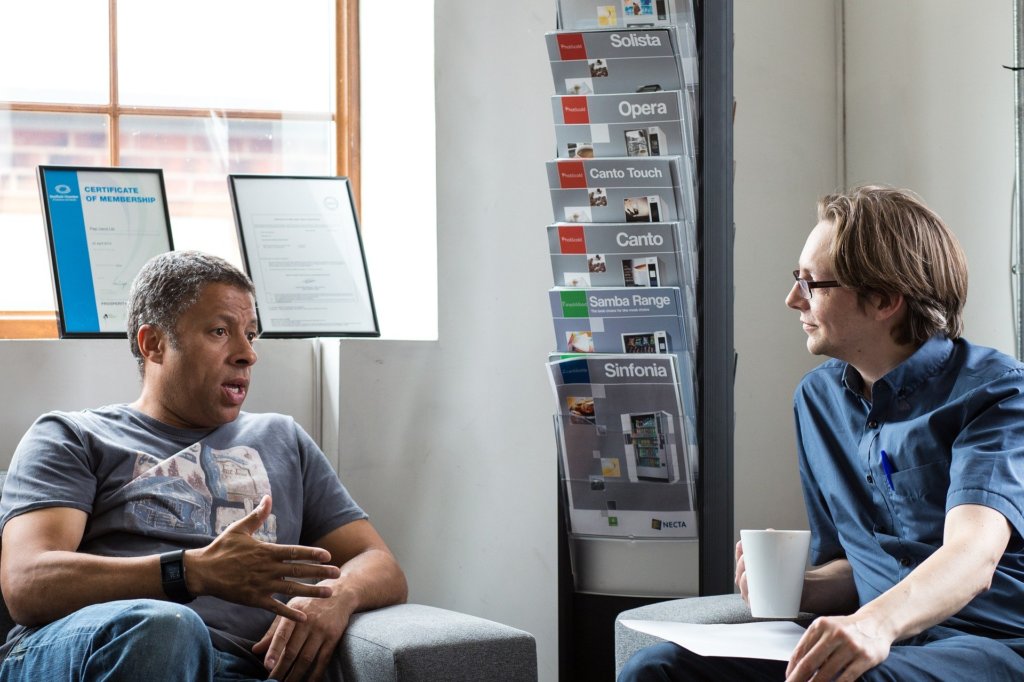Do You Talk to Your Clients About Self-Care?
Gael Hannan (The Way I Hear It) is a hard of hearing advocate that understands both sides of the fence between the consumer and the hearing health care professional. Gael’s columns are humorous, sometimes cutting, but always constructive and to the point.

If your practice is based on person-centred care, you understand the importance of self-care to the quality of life for people with hearing loss.
What does it actually mean?
Formal description: The practice of taking action to preserve or improve protect one’s own health and wellbeing, particularly during periods of stress.
Casual: Anything that you intentionally do to take care of your mental and physical wellness.
The goal of self-care is to develop life-equilibrium to deal with threats to our health. To pull our spirit back from being on your knees with fear and anxiety to an upright and confident position. Self-care aims for improved mental calm and physical wellness that can benefit those dealing with hearing loss.
Self-care has become important to me because, these days, I need a lot of it. I’m now a senior with all that entails. Then there’s the stress of the pandemic, masked communication and dealing with long-covid symptoms. But it’s the hearing loss and relentless head noise that demand much of my attention and energy.
The standard hearing aids and assistive technology options continue to expand in their effectiveness, yet they are not a complete remedy for related social issues, including stress. We must still work hard at understanding what’s going on. And your clients with tinnitus and/or hyperacusis, growing in number due to covid- and vaccine-reported tinnitus, have a different set of stress levels! They likely spend a huge amount of time on the internet looking for cures among the many supplements or head-thumping exercises that say, “Use me, swallow this and enjoy head silence once again!”
Is it time to suggest some real self-care strategies to your clients?
Recently, on my journey with hearing-related issues, I realized that hearing assistive technology, while a game-changing super strategy, needs support to help me operate as best as possible. I learned the value of non-technical strategies, working with a caring audiologist, and accepting the help of others. But I have also discovered the power of self-care in reducing the stress stemming from tinnitus and hyperacusis.
I pursue calmness, not always an easy task for someone who traditionally operates on nervous energy. It’s a process and an important one. It’s a fact that when calm(er), we’re better able to deal with life’s yucky stuff. We can see more clearly though the haze of anxiety and can make better decisions about how to go forward. The decisions we make and act upon, intentionally.
Cheryl Bundy, a hospital chaplain, says in an article that self-care is not a selfish act – it’s important to take care of our ‘whole person’ to deal with what’s going on in our life. Ms. Bundy describes seven important elements of self-care and I encourage you to read her article.
This is what I try to do, every day, although some days zip by without getting in, for example, at least a few minutes of mindfulness or a good workout.
I try to keep my mind engaged on things that interest me – as well as the necessary, but more mundane tasks.
I aim to get enough sleep and rest because the body needs it to function at its best.
I eat good food – the nutritious kind, balanced with an occasional dollop of the stuff that’s not good for you, but makes you happy while you’re eating it.
I exercise – aiming for at least an hour a day plus some yoga time. Some days I even hit that target.
I reduce my noise intake. My reactive tinnitus doesn’t like a lot of noise and less noise means more calm.
I meditate and deep-breathe. This has been a game-changer. My goal is 40 minutes a day, but the reality hovers around the 20-minute mark. It pays off in a quieter head, reinforcing the belief that there are things that help.
I try to practice gratitude and kindness. I can be a real Negative Nellie, so I’m working to shift my attitudes. Meditation helps, as well as being around positive people.
And sometimes I throw hissy fits, inner and outer. Because that’s me. Then I move on.
All these strategies support each other and merge into self-care. This approach has made an amazing difference in my life, and it may do the same for your clients.
Mental and physical wellness are both impacted by hearing loss. To help your clients live better with their hearing loss, discuss ways to address their overall wellness.

